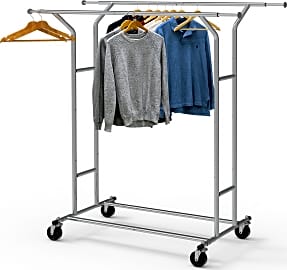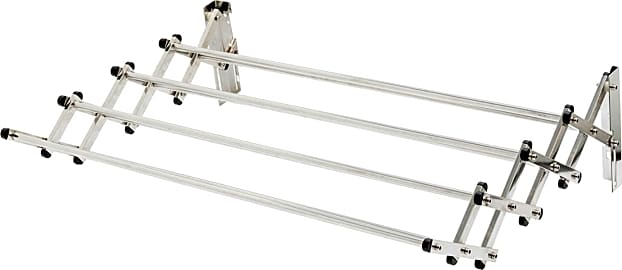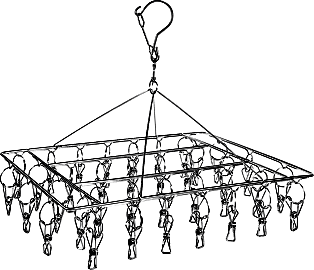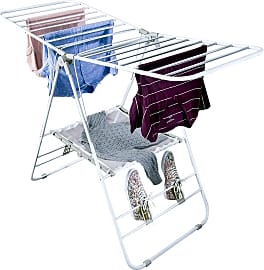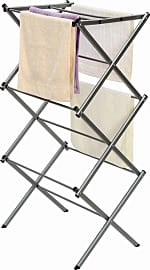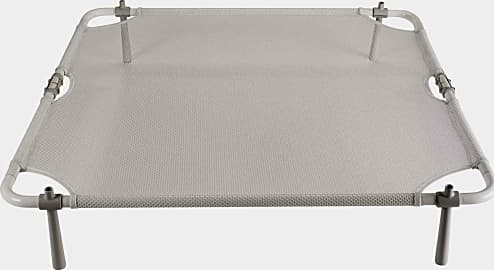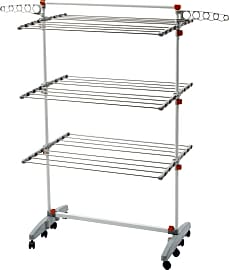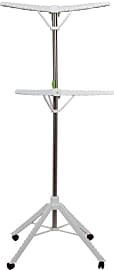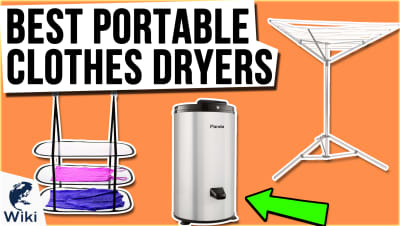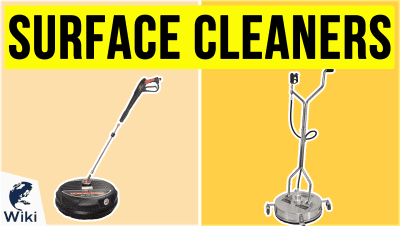The 10 Best Drying Racks

This wiki has been updated 41 times since it was first published in June of 2015. If you don't have a tumble dryer at home, prefer the smell of laundry dried in the fresh air, or just want to save on energy costs, try one of these drying racks. They can protect your delicate clothes from the rough and tumble of a machine and are available in space-saving designs that can still handle entire loads. We've selected models that require installation, as well as those that do not. When users buy our independently chosen editorial recommendations, we may earn commissions to help fund the Wiki.
Editor's Notes
June 25, 2021:
We chose to replace a previous 3-tier selection with the Idee BDP-V23, which has as much room as any other collapsible wheeled model. We also highly recommend the Idee BDP-V23, which is ubiquitous in parts of the world where they don't often use air conditioning or dryers, such as Europe. It's especially nice because of how compactly it folds down. Our top pick is still the Brabantia Lift-O-Matic because of its wide volume, unbeatable airflow, and temporary or permanent installation options.
March 04, 2020:
The natural aesthetic of the Household Essentials Bamboo X-Frame is appealing, but we've opted to remove it and not replace it with any wood versions as top choices at this time. The X-Frame can have small splinters that damage your delicates, while most of the competition is prone to mold. For those who want a standing, collapsible rack, a plastic or metal version is a better choice, whether that's the (admittedly narrow) Storage Maniac or the Honey-Can-Do Gullwing. If space is at a premium and something smaller is required, there's the Aero W Collapsible or the Polder Accordion. You'll need to install them, but with the right tools, this task isn't too burdensome. But installation difficulties are why we removed the Leifheit Telefix, which is useful but packaged with mounting hardware that leaves a lot to be desired.
On the other end of the size spectrum is the Brabantia Lift-O-Matic, designed for outdoor use. It offers tons of room for drying clothes, and it can be removed from its ground spike if need be. For those who have ample sunshine, it's an excellent outdoor alternative to a portable clothes dryer. Finally, we added two clothing-specific options, the Oxo Good Grips Sweater and the Duofire Drip. They're for delicate sweaters and undergarments, respectively. Note, though, that the former tends to bow a little in the middle, so it can be frustrating to use with truly bulky, heavy sweaters.
Special Honors
Pottery Barn Trenton Designed as one component of a modular system, the Pottery Barn Trenton is a wall-mounted choice that is quite eye-catching thanks to industrial steel and mango wood. It folds up neatly out of the way when not in use and provides a total of seven drying rods for your towels or clothing. potterybarn.com
A Timeless Classic: The Drying Rack
These units require minimal setup and can be moved or tucked away for storage whenever needed.
A drying rack saves money. It doesn't run on electricity or natural gas, and is, in fact, the only way to properly dry sensitive garments made of wool or silk. Therefore, you can think of a drying rack not necessarily as an alternative to a traditional dryer, but as a part of your larger laundry regimen. Or, you can choose to eschew dryers altogether in favor of a time-tested method people have used to dry their clothing and linens for tens of thousands of years: air, time, and, in the case of outdoor racks, sunshine.
And, as many of the racks on our list are reasonably priced, they are an investment you can easily afford. Even top-of-the-line outdoor drying racks aren't very expensive, and the amount of money they can save you in appliance operating costs makes the investment well worth it.
When choosing a drying rack, first and foremost you must know where the unit will be placed. If you need a drying rack that is intended for indoor use, the most convenient option is often one that simply perches on the ground. These units require minimal setup and can be moved or tucked away for storage whenever needed. They may take up some floor space when in use, but they can always be put away when not holding your damp clothes. Some freestanding drying racks also feature several larger shelves that are perfect for clothing that must be laid flat to dry.
If your home would be better served by a wall mounted drying rack, consider whether you prefer a unit that is always deployed and ready or one that can be folded flat against the wall when not being used. These accordion-style units can't support as much weight as permanent shelving, but they can be easily tucked out of the way.
For the laundry drying rack that will be placed outside, you need a unit that can stand firm, even in the breeze. While some freestanding units can be used perched on patios or decks, the ideal outdoor drying rack is one that can be mounted firmly in the ground. Such drying racks are usually large enough to accommodate whole loads of laundry at the same time and allow for great airflow and exposure to sunshine that helps clothing to dry quickly.
Why Drying Racks Are A Smart Idea
If you should choose to ditch the dryer altogether and put all your drying in the hands of a drying rack, you won't be displeased with the results, so long as you pick the right drying rack to serve your needs. And your bank account won't be displeased with the savings you reap by not running cycle after cycle of wash through that power-hungry appliance.
Drying racks are also one of the simplest ways to reduce your carbon footprint.
According to the Consumer Energy Center, a division of the California Energy Commission, if your household does just three loads of laundry a week, you won't incur much in terms of drying costs. However, most families do much more laundry than that, with the cost of operating a dryer alone (without the purchase price included, that is to say) totaling more than the price tag of even the most expensive drying rack.
Drying racks are also one of the simplest ways to reduce your carbon footprint. By using a drying rack instead of a dryer, your property will consume markedly less electricity each year, meaning less environmental impact.
And while clothes dried on a rack instead of in a machine may take longer to be fully dried each time, they will last much longer thanks to the gentle process of natural drying compared to the heat and tumbling of an automatic dryer.
How To Help Your Laundry Out
The best thing you can do to ensure that your laundry is properly cleaned and dried is to simply read and follow the included instructions. If a given shirt states it is to be laundered cold and then laid flat to dry, by all means do just that. If a shirt or other garment states that it can be tumbled dry on a low setting, then consider laying it flat anyway to extend its life. And, of course, use the proper wash cycle settings and temperatures, as well. Avoiding fabric softeners can also preserve the quality of your clothing, as these substances can lead to a yellowing of white fabrics over time and reduce the absorbance of all cloth.
Many people balance their use of drying racks and traditional clothes dryers.
Many people balance their use of drying racks and traditional clothes dryers. If you are going to dry clothing in a regular dryer, consider ditching those dryer sheets. While most dryer sheets are relatively safe, being free from a panoply of toxins that many health and wellness bloggers decry, some brands do contain chemicals best avoided, such as traces of formaldehyde. And the cost of dryer sheets adds up quickly in the home where laundry is plentiful. Instead, opt for wool dryer balls that can help reduce wrinkles and static naturally. They are eco-friendly and pay for themselves rapidly in terms of money saved on dryer sheets.
If you use an outdoor drying rack, make sure you are heedful of the damage sunshine can do to colored fabrics. Sunlight -- specifically ultraviolet sunlight -- can fade and bleach dyed clothing, causing permanent damage to your garments. A bit of warm sunshine helps dry clothes quickly, and is fine thing; too much sunlight will cause a photodegradation reaction that will ruin them. Place your drying rack where it will experience only partial sun, such that it can be turned to rotate items out of direct sunlight, or simply make sure not to hang anything in the sunshine for too long.



